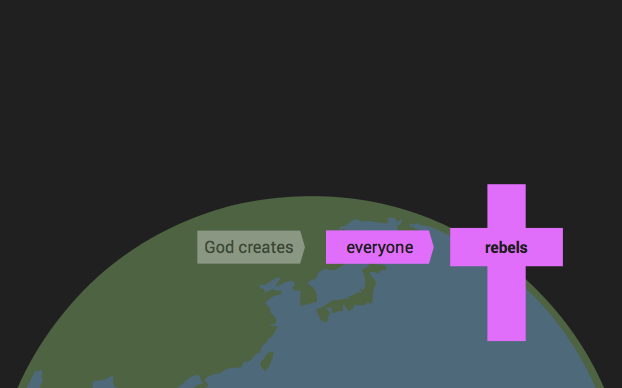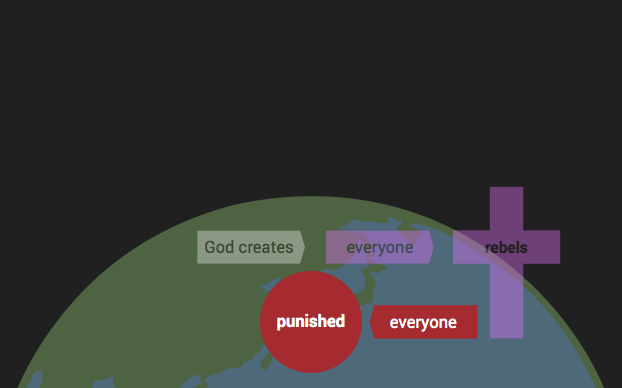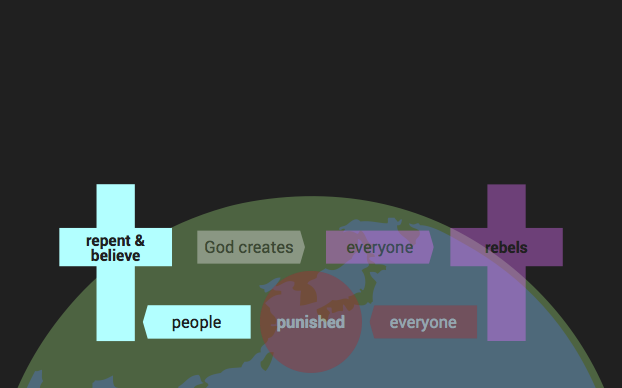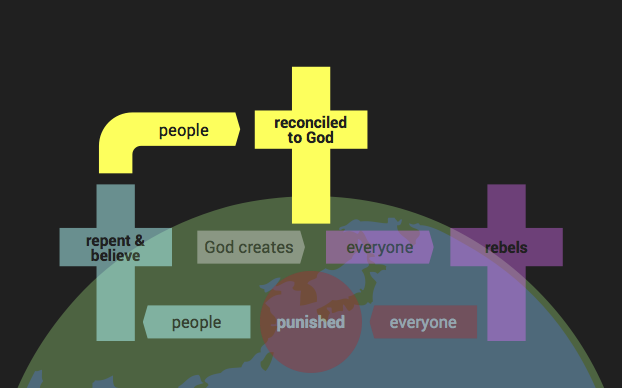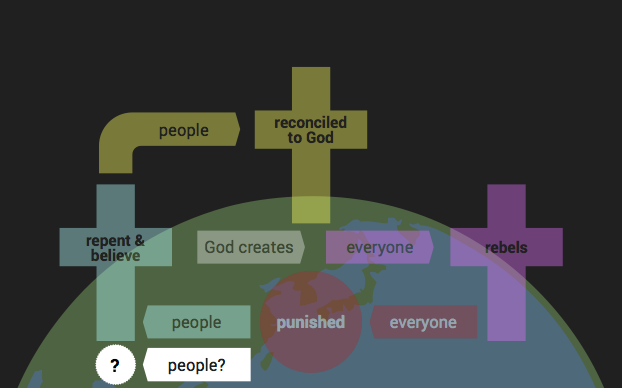2016—the year fear trumped hospitality?
This year, more than any I can remember, politicians have played on people’s fear of strangers to win votes. I can think of examples in the UK, US, and Australia, and I wouldn’t be surprised if this disturbing trend extends to other countries as well. Sure, the refugee crisis, people smuggling, trafficking, and immigration are complex issues but I think it’s fair to say that a lot of recent policies haven’t been motivated by hospitality…
However, I don’t think we can just blame political leaders, as governments usually reflect the concerns of their citizens. Therefore, our fear of strangers will be amplified by our representatives. So if we want our governments to show hospitality, we must first show hospitality in our own lives—in our homes, in our churches, wherever we are. And it’s our hospitality that I’m going to focus on today.

To recap the last post, hospitality wasn’t an afterthought for Jesus. No, He spent a lot of time showing and participating in hospitality. It also was a prominent feature in His teaching. So we have to ask, Why? What does it tell us about God’s character? I suggested that:
- It practically helped people—it showed that God is down-to-earth, caring about even our most basic needs.
- It demonstrated that God ignores our cultural, racial, and class boundaries—that His grace and love are inclusive.
- It gave people a taste of God’s promised feast—literally. In the New Creation, God wants everyone to sit down with Him, to share and enjoy good things together. And He proved it to them by sitting down with them and sharing good things.
- It proved Jesus was the Messiah—God come to rescue humanity—that He was greater than everyone who came before Him, even Moses and Elijah.
Last week I focused on hospitality, from Jesus, right through to the last chapter of the Bible. However, hospitality appears throughout the Bible, starting from the very first chapter. God welcomed humanity into existence, into His space, and out of love, He fed and cared for us—showed us hospitality.
Then God said, “Look! I have given you every seed-bearing plant throughout the earth and all the fruit trees for your food.
Genesis 1:29, NLT (cf Gen 2:8-9)
It’s also in the oldest book in the Bible—Job. Job says:
I have never turned away a stranger but have opened my doors to everyone.
Job 31:32, NLT
So why do we show hospitality? Well, the first reason is, because God’s shows hospitality and asks us to imitate Him. This is explicitly stated in Deuteronomy:
He [God] ensures that orphans and widows receive justice. He shows love to the foreigners living among you and gives them food and clothing. So you, too, must show love to foreigners, for you yourselves were once foreigners in the land of Egypt.
Deuteronomy 10:18-19, NLT
And this isn’t an isolated passage, it’s a theme.
You must not mistreat or oppress foreigners in any way. Remember, you yourselves were once foreigners in the land of Egypt.
Exodus 22:21, NLT (See also Exodus 23:9)
The foreigner residing among you must be treated as your native-born. Love them as yourself, for you were foreigners in Egypt. I am the Lord your God.
Leviticus 19:34, NIV
Notice how similar Leviticus is to the Great Commandment:
For the entire law is fulfilled in one statement: Love your neighbor as yourself.
Galatians 5:14, HCSB
Is it not [God’s desire] to share your food with the hungry and to provide the poor wanderer with shelter—when you see the naked, to clothe them, and not to turn away from your own flesh and blood?
Isaiah 58:7, NIV
And the Israelites took hospitality very seriously:
In ancient Israel, hospitality was not merely a question of good manners, but a moral institution … The biblical customs of welcoming the weary traveler and of receiving the stranger in one’s midst … developed into a highly esteemed virtue in Jewish tradition. Biblical law specifically sanctified hospitality toward the ger (“stranger”) who was to be made particularly welcome … Foreign travelers … could count on the custom of hospitality.
Encyclopaedia Judaica, Hospitality
Encyclopaedia Judaica give some examples, but there are many more:
- Abraham saw the three men [angels] of Mamre “from afar” and he hurried to invite them into his house, ministered to their physical comfort, and served them lavishly (Gen 18).
- Laban was eager to welcome Abraham’s servant while Rebekah attended to the comfort of his camels (Gen 24:28–32).
- Jethro the Midianite was particularly disappointed at being deprived of the opportunity to extend hospitality to Moses (Ex 2:20).
- Manoah did not allow the angel to depart before he had partaken of his hospitality (Judg 13:15).
- The Shunammite woman had a special room prepared for the prophet Elisha (2Kings 4:8–11).
- The extreme to which hospitality was taken is shown by the stories of Lot and the old man of Gibeah (Gen. 19:4–8 and Judg. 19:23–24).
- Rahab harbored Joshua’s two spies (Josh 2).
- Barzillai extended hospitality to David’s men (2Sam. 17:27–29).
Turning to the New Testament, we see the author of Hebrews appeals to this tradition:
Don’t forget to show hospitality to strangers, for some who have done this have entertained angels without realizing it!
Hebrews 13:2, NLT
Likewise, the Apostle Peter encourages us to:
Above all, keep loving one another earnestly, since love covers a multitude of sins. Show hospitality to one another without grumbling. As each has received a gift, use it to serve one another, as good stewards of God’s varied grace.
1 Peter 4:8-10, ESV
And so does the Apostle Paul:
When God’s people are in need, be ready to help them. Always be eager to practice hospitality.
Romans 12:13, NLT
These examples also show that hospitality should be both an action and an attitude.
For about the first 350 years of Christianity, Christians met almost exclusively in homes. This meant churches naturally revolved around hospitality, specifically sharing a meal. We see an example of this in Acts.
And day by day, attending the temple together [only those in Jerusalem] and breaking bread in their homes, they received their food with glad and generous hearts.
Acts 2:46, ESV
So it makes sense that one of the desirable qualities of a leader was to be hospitable.
but hospitable, loving what is good, sensible, righteous, holy, self-controlled,
Titus 1:8, HCSB (see also 1Tim 3:2,5:10)
Another reason to show hospitality is because it’s a way to love God. We see this explicitly in the parable of Sheep and the Goats:
“For I was hungry, and you fed me. I was thirsty, and you gave me a drink. I was a stranger, and you invited me into your home. I was naked, and you gave me clothing. I was sick, and you cared for me. I was in prison, and you visited me.’
“Then these righteous ones will reply, ‘Lord, when did we ever see you hungry and feed you? Or thirsty and give you something to drink? Or a stranger and show you hospitality? Or naked and give you clothing? When did we ever see you sick or in prison and visit you?’
“And the King [Jesus] will say, ‘I tell you the truth, when you did it to one of the least of these my brothers and sisters, you were doing it to me!’
Matthew 25:35-40, NLT
My next post will look at “How, and to whom, do we show hospitality?”, which happens to also give three more reasons to show hospitality.






